Drug Rehab for Family Members That Need Help
Rehab will be the best solution when you are trying to help out a family member who is addicted to drugs or alcohol. Experts do not advise detoxing at home, especially from harder drugs such as benzos. When a family member is struggling with addiction, your best course of action is to call and speak to someone who is in charge of rehab. They can help your loved one find the best facility for their needs. Read on to learn about drug rehab for family members that need help.
When is Help Necessary?
The first step will be making sure you are right that your loved one is addicted to drugs or alcohol. Addiction is now known to be both a physical and mental illness, and it is something that can happen to anyone of any race, gender, or age. Unfortunately, denial is a big part of the problem for most families. Some people won’t even be aware that they are slipping into the abuse stage until it is too late. Addiction usually happens over a gradual period of time and unwittingly. For example, some addicts become dependent on prescription opioids because of an illness or accident. They begin to take more and more of their prescribed medications, leading to tolerance and then to an increase in dosage to get the same effect. It becomes a vicious cycle that can be very hard to break.
It’s important to know how to spot the signs of an addict. Unfortunately, many of the more common symptoms overlap with the symptoms of mental health issues, such as PTSD or depression. However, common signs of a drug problem do include:
- Changes in sleep patterns
- Irresponsibility
- Hygiene changes
- Major mood swings
- Preoccupation with obtaining their substance of choice
- Changes in friend circles
- Avoiding family and friends
- Legal issues stemming from drug or alcohol abuse
- Inability to stop on their own
- Staying out all night or sleeping all day
These are just a few of the signs that could mean your loved one has a substance abuse issue. You may want to get a second opinion if you are unsure. A reliable rehab center can offer your family these services.
What to Expect in Rehab
Once your family member or friend decides to accept rehab, they will likely want to know what they can expect. You can help by researching the process for them in order to give them an idea of what they have to look forward to. Rehab is broken up into the following segments:
- Detox
- Group Therapy
- Behavioral Therapy
- Aftercare
Detox- Detox will always be the first step when your loved one comes into the rehab facility. How much help they receive will depend on their level of addiction. If they need serious intervention, including education or help for another medical condition, they may need to go to a hospital-like setting to get monitored assistance day and night. If their addiction is not as severe, detox in a residential center may be enough.
Group Therapy- Group therapy will almost always be a part of any rehab program. It’s an important part of the healing process and will be a requirement if the rehab offers it. Group therapy sessions allow patients to speak with others about the same issues they are dealing with. It’s helpful for those who feel like they are all alone to find out that they are not.
Behavioral Therapy- One-on-one therapy sessions will also begin as soon as possible during rehab. These sessions will focus on the behaviors surrounding the addict-particularly why they choose to use drugs and alcohol in the first place. If your family member is struggling with any kind of mental health disorder, such as PTSD or anxiety, this will also be addressed during these sessions.
Aftercare- Aftercare sessions are something that will be set up when the rehab stay is near its end. If your loved one needs additional help, the rehab may suggest additional time in a structured program, such as a sober living facility. They will also make sure that your loved one knows who to turn to for additional therapy, such as AA or NA meetings. Whatever the case, aftercare is a very important part of the process for every addict. Your loved one needs the care and support of his or her family while they integrate themselves back into society.
When your family member needs help with his or her addiction, we are here for them. Call us today at 424-499-2603 when you want to learn more.
We offer more than a recovery program, offer an experience.
© 2021 California Centers for Recovery. All Rights Reserved.

